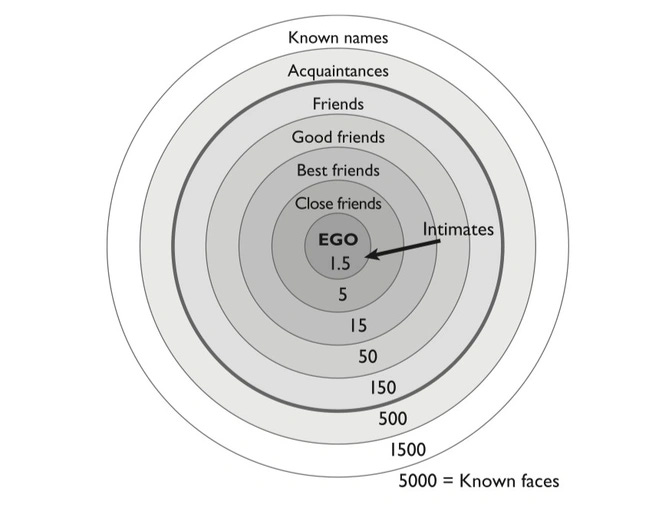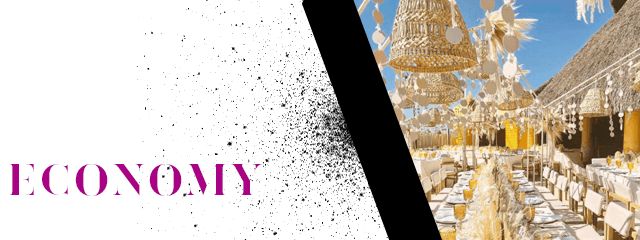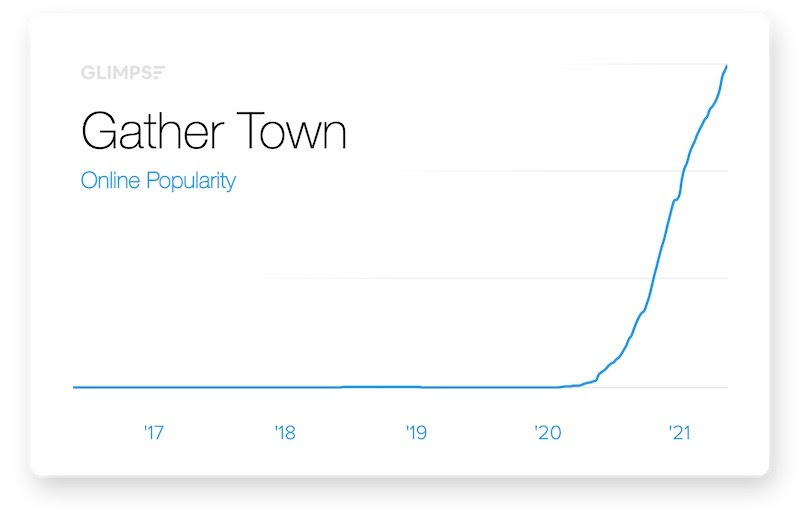State of Awe Digest #32 | Predictable selfies in predictable places are out
The Latest Wonders in Experience Design, Festivals and Gatherings
June 6, 2021
Our aphorism to help with the times: There aren’t that many moments in life when you feel totally free. It is because we rarely seek space that goes beyond the reaches of our thinking selves; be it wild dance, unbridled love, explorative travel, inward meditation, outward expressiveness, or scenes of grandeur. Vastness exalts the captive spirit.
State of Awe is a regular trend briefing from experience designer, Jordan Kallman and event brand curator, Tyson Villeneuve at The Social Concierge.
New to the digest? Understand OUR BELIEF and dial in OUR INTENTION.
For curious subscribers, you can find all previous digests here. A catalogue of current and future topic areas can be found here.
Insight Map 🔮 The Digest Summary
House of Focus: preferences are shifting and a redistribution of experiences is incoming;
Experience Design Strategy: how Dunbar’s number, a relationship measure, may be more fluid than you thought;
Arena of Economics: the hype-driving community drop model;
Meaningful Virtual Experiences: virtual experiences don’t seem to be fading, yet;
Experience Economy Stories: reminiscing on the magic of a good festival;
Thinkers and Philosophers: the odd couple who did more than create Studio 54;
As is tradition, one aphorism, six hot morsels, four beautiful instas (in visual banner form) and our polite reminder to share this digest with an event mind who you know.
House of Focus 🎯 The Redistribution of the Desirable
“Most people don’t miss sitting on a double-decker bus tour, going to a crowded lobby, or getting a selfie in front of the Leaning Tower of Pisa”, says Brian Chesky CEO and Co-Founder of Airbnb.
The Airbnb Founder believes the pandemic will bring about a travel redistribution. We agree; a big reshuffling is underway. And the deck of desirable experiences has a whole new set of cards on top. In the feature piece (linked above) he states, “trips are going to get longer, and traveling and living are going to gradually blur together, because in a world where many people can work from home, they can work from any home” (see digest #22 for more on the big blur). In his estimation, travel will expand from one hundred cities to ten thousand cities. It is a compelling observation, one that is likely backed by reams of booking data.
The insight: Brian Chesky’s strategic shift for Airbnb is so relatable. Who doesn’t have a huge pandemic list of all the things we simply don’t miss? Our tolerance for annoyances has plummeted. Predictable things? No time for that. He identifies this as a coming redistribution of preference, guided by structural societal change. Behaviour and habits have morphed, virtual immersion is exploding and our social norms are undergoing radical rethinking. One will become one thousand. Living will become even more experience-driven, but the game will have changed. And possibly your location.
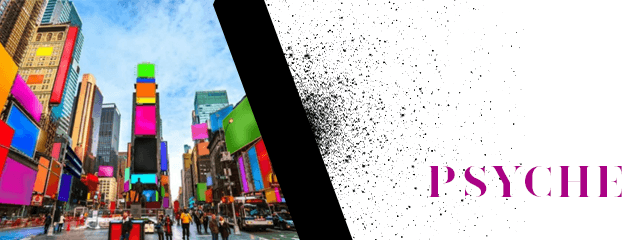
Experience Design Strategy 🌊 A Shapeshifting Social Sphere
Dunbar’s number, known as the proposed cognitive limit to the number of relationships we can maintain in our lives at any given time (based on the observation of primates), is a popular gathering design principle.
Challenging assumptions. Yet, in a feature interview, Robin himself admits that the “150 friend limit” requires a more nuanced understanding. The number can vary widely when comparing introverts and extroverts, and the use of the concept rarely accounts for the relationship churn one experiences in life. These admissions also mirror recent research that shows the healthy limit could be much higher, possibly even as high as 500. The line between friends and acquaintances might be more three dimensional than Dunbar’s map lets on:
Fluid networks. It is time to splash water on the rigid circles and increase the social opportunity that exists between friends and acquaintances. Please welcome to the stage liquid modernity from Polish philosopher, Zygmunt Bauman. Defined by the characteristics of water’s flow, it is a cultural state of mind that frees us from a commitment to any one identity, place or community. It is a rapidly accelerating trend we have observed: traditional institutional thinking is crumbling. Let’s call it “infinite browsing mode” for everything in our lives, a way of life that Zygmunt believes is the defining characteristic of our generation.
The insight: uncertainty is now the only certainty. Bauman argues that modern life is embodied by the fact there are no permanent bonds. And while we believe your innermost Dunbar circles need stability for a life well-lived, today’s social culture is eviscerating the predictable relationship positions of the outer rings. As designers, how might we encourage an ephemeral, higher connection churn? How might we plan for experiences that amplify tight knit inner circles, while opening up short-lived and interest-driven relationships in larger numbers? There’s a good chance relationship culture is moving from solid Dunbar circles to liquid Dunbar spheres, and social opportunity abounds.
Arena of Economics 💰 Exclusive Community Drops
While inclusive design rages as a key cultural tenet, the economics of the experience economy continue to weaken. In a recent virtual events industry benchmark report, a full 91% of events over the pandemic were zero dollar free. But not all is lost.
💵 Making money in the Metaverse. The economic paradigm, at least for online experiences, is community-centric. And this new economic establishment will likely result in interesting implications for IRL. This feature outlines the five factors of a successful community economy: a special meaning or emotional attachment, the thrill of reselling valuable pieces, the shared interest with other friends, discovering like-minded people and the feeling of building something together.
⚙️ Revolving newness. One of the strongest online product communities is the sneakerhead collector market. And while some call the constant cycle of consumerism unsustainable, the “product drop” model is driving a huge economy. As this feature on sneaker communities suggests, it is the combination of an inclusive community ethos and exclusive, rare sneaker purchases that really finds a value stack. The economics are so healthy, services to optimize your sneaker returns are flourishing.
💣 Scarcity drops. Luxury brands are turning this model, perfected by sneaker makers, into a hype-driver that also returns big money. These special edition products drive novelty, but also connection, bringing together top collectors from around the world who share the same niche interest.
The insight: it is a time to embrace the tension between inclusive design and exclusive economics. The foundations of creating a good VIP program (for festivals) should now be combined with a welcoming and continuous community element. And once you have established the shared beliefs and common interests of your loyal fans, you need to introduce community drops to drive economic return.

Meaningful Virtual Experiences 📱The Latest and Greatest
While it may seem that the excitement of virtual gatherings is dying off as the slow return to in-person events grows, it is quite the opposite. The popularity of spatial audio-based worlds, such as Gather Town, continues to skyrocket.
(source: Glimpse Trends)
A few other hot items from the virtual human experience spheres:
Gated access. Twitter will be ticketing events in their audio-only service, Spaces. Here’s how it works. Spotify launched a set of summer concerts with marquee artists that will be $15 per stream.
Layered vision. Snap has launched new augmented reality Spectacles. The hardware is for developers only, as the battery still only lasts 30-minutes. But you can see the future materializing quickly.
Branded worlds. Luxury fashion houses are realizing the potential of custom virtual spaces. Immersive digital realities are the newest experiential brand activations. They unlock imaginative space to communicate ideas and values, following the trend of brands-as-cultural-platforms versus just commercial entities. Data shows the doubling of investments in VR.
The insight: two cities created a digital bridge between them to force their citizens to “rethink the meaning of unity”. Synchronicity is increasingly being found in the Metaverse, and those IRL examples of digitally augmented reality.
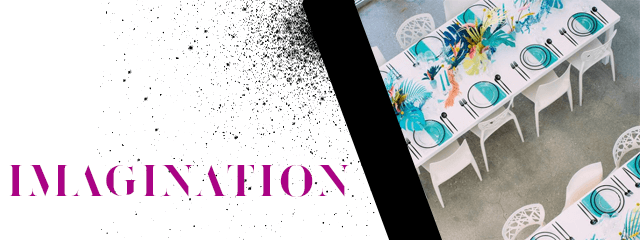
Experience Economy Stories 📖 The Festival Magic Trick
For those longing for the back of house chaos of a live summer festival, we bring you a short story from a stage manager at Glastonbury. It is a story of gratitude for the sights and sounds, now firmly in the past, and the privilege of taking part in those truly free-feeling moments that a festival provides.
“And this is how I think of festivals now: as a kind of magic trick, a yearly show of shadows, visions, dreams; something conjured out of thin air, over sweet green fields.”
Thinkers and Philosophers 🕵 Ian Schrager and Steve Rubell
Ian Schrager (1946 - ), and his long-time partner Steve Rubell (1943 - 1989) were the iconic duo behind the infamous discotheque, Studio 54. Beyond their label as “lords of the disco era”, the two were experience design masters. Ian went on to kickstart the boutique hotel concept in the ‘80s. Inspired by our recent watch of the Netflix documentary, here are a few insights from these global culture icons:
🎭 Adepts of absurdity. Studio 54 launched at the perfect time, in the ideal location and captured hearts and minds across the globe. Yet it was the limit-pushing inanity that fed the cycle of celebrity involvement and ravenous media coverage, which amplified the hype. It was so hard to get in that a black tied patron was found dead in an air vent after trying to find a way in. Bianca Jagger is still embroiled in the details of riding a horse in the club. Just ask Elon Musk, absurdity wins the soul after you already have their hearts and minds.
🌅 Wild abandon. As Andy Warhol famously said, “The key to the success of Studio 54 is that it’s a dictatorship at the door and a democracy on the dance floor.” Getting back to our aphorism off the top, the ecstatic wildness was spawned by the inclusive community vibe created by the exclusive barriers. It was the inner freedom that embodied the Studio 54 experience ethos. Remember that thoughtful exclusion can cultivate a culture of oneness with those inside the circle.
💡 Success principles. Schrager outlined three things that set Studio 54 apart. And we argue they are still relevant today: it was a place of absolute freedom, it was a sanctuary of safety, and it was a space that demanded diversity.
🎊 Celebration design. Ian, now one of the top hoteliers in the world, sees a radical shift coming to our physical spaces. His hotels are moving away from the “Scandinavian sameness” that defined the last decade and towards playfulness, meant to unlock celebration. His designs will be immersive, and as always, intended as microcosms of togetherness.
The insight: Ian and Steve created, and continue to create, cosmoses of connection. They shaped a cocoon and that insulated design birthed spectacular things. So spectacular that in the case of Studio 54, it became absurdity theatre. In this era, much like then, the inane has tremendous value.
Hot morsels to liven up conversation with your Dunbar circles
🙌 The United Kingdom’s live event tests were a success, with only 0.03% of the attendees infected. The Dutch Fieldlab tests are showing the same, with infection risk no different than “staying at home”.
📬 A photo tour of HBO’s latest delivered influencer kit.
🟦 Superblue, the immersive art venue in Miami featuring Es Devlin, James Turrell and teamLab (all artists previously featured in this digest) opened last week. Miami trip, anyone?
🗺️ An extensive and extraordinary “map of the internet”. Metaverse’ers will one day look back on this with fond nostalgia.
🦻 What would it be like to hear colours? Google launched an experiment based on the abstract art of Wassily Kandinsky.
🧱 World of Concrete, the first mass-scale, in-person 10,000+ attendee trade show since the start of the pandemic, kicks off in Vegas this week. Also, Miami is raging.
End note
While it seems likely we will be handshaking and after-partying before too long, we are not out of the woods yet.
Despite really high vaccination rates, the UK is seeing a big new wave of cases, and social psychologist John Drury has a strong take. The live events and gathering industries need more support to get through this if there are any further delays to reopening.
Where we are from, live experiences continue to bubble up. Pretty soon we will be back to our old tricks, and I’m assuming you will be too. In anticipation, direct anyone you know ramping up and needing inspiration here.
As Ever,
Jordan + Tyson




